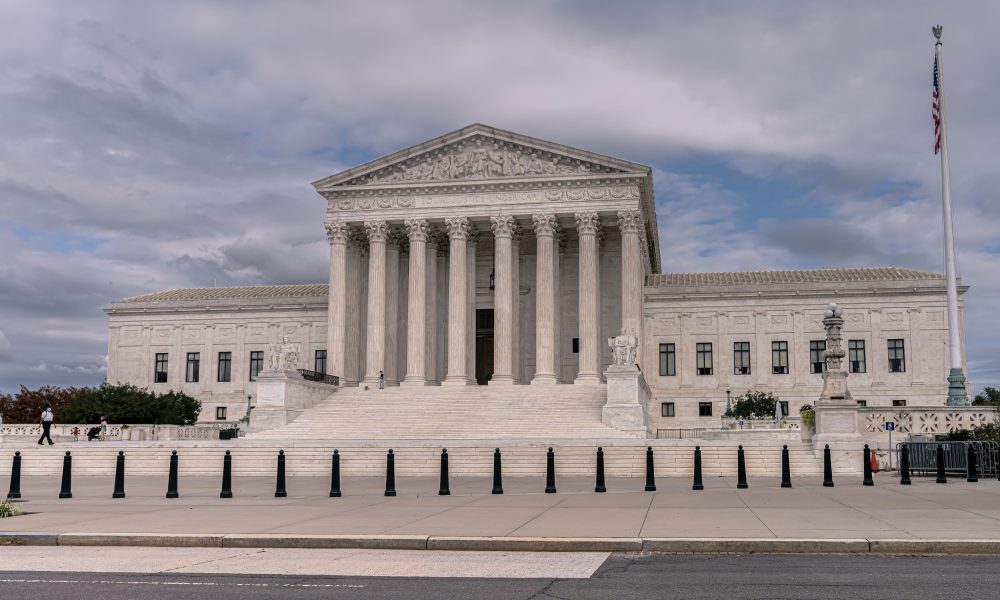The first Monday of October marked the start of the new term for the Supreme Court, and this year will be the second term in a row with blockbuster cases on the docket.
A set of cases in this year’s term include the theme of racially involved controversies such as affirmative action and election laws, and whether SCOTUS will approach these cases with a theme of racial neutrality.
Political science professors Jason Whitehead, Alexandra Lohman and Kathryn Perkins handpicked and discussed some of the more controversial cases in this year’s docket during an open preview on Monday.
Perkins began the discussion by briefly mentioning “the changing dynamics” of the Court as Ketanji Brown Jackson, who was recently sworn in as an associate justice over the summer, joined as the first Black woman to serve on the U.S. Supreme Court.
“She ideologically doesn’t change the Court very much,” Perkins said. “Really what she is coming into is what some commentators describe as the ‘hornets’ nest.”
By the “hornets’ nest” Perkins is referring to the ideological polarization of the justices who make up the Supreme Court, who are “breaking an age-old practice” by refusing to discuss with the media their ideological differences.
Perkins mentioned that a majority of right-wing justices seem to be “trying to undo a lot of the post-New Deal era politics.”
This example was already seen this summer when SCOTUS overturned Roe v. Wade, a landmark case which had set the precedent for the right to an abortion, in its decision in Dobbs v. Jackson. In the majority opinion delivered by Justice Samuel Alito, abortion was not considered a fundamental right (one which is deeply rooted in the nation’s history), nor was it specifically protected in the Constitution.
Two of the cases on this docket could have just as big an impact, where SCOTUS could determine the admissions process of students into universities, overruling Grutter v. Bollinger, a case that allowed race as a factor in student admission.
Racial preference in universities has been on the Court’s agenda since the 1970s, according to Whitehead, since the Bakke case where the Court recognized the use of racial preference to undo the effects of racial discrimination.
Students for Fair Admissions, the plaintiff in both cases against UNC Chapel Hill and Harvard, argued that the racial factor is a violation of the equal protection clause under the Fourteenth Amendment in public universities. In their case against Harvard, which is a private university that receives federal funding, the racial factor is a violation of Title VI of the Civil Rights Act..
However, Students for Fair Admissions, Perkins added, is an interest group that was created to challenge affirmative action in these test cases at the Supreme Court level.
“Just like with the timing of Dobbs and the reversal of Roe v. Wade, these cases have been strategically brought to the Court in order to secure this victory they’ve been fighting for,” she said.
A theme of whether SCOTUS wants to encourage a trend of racial neutrality is seen not only in the Students for Fair Admissions cases, but also in a set of cases regarding election law– Merrill v. Milligan and Moore v. Harpers.
Both cases involve the drawing of congressional districts, a process designed to fairly reflect population changes and the racial diversity in each state, with a representative elected from each district. The issue for this set of cases, one in Alabama and another in North Carolina, is the lack of representation in their majority-minority districts.
“The Supreme Court is being asked to decide whether there is a line between race consciousness in the drawing of district lines and racial discrimination,” Whitehead said. “It’s a very fine distinction.”
Whitehead added that Republicans are arguing the drawing of district lines should be completely race neutral. These election cases tie in with the affirmative action cases in the question whether any factor of race is allowable.




